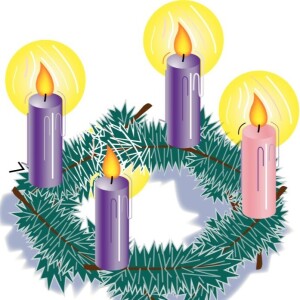Episodes

Monday Dec 16, 2024
Preparing for Worship - December 22, 2024
Monday Dec 16, 2024
Monday Dec 16, 2024
The readings this week bring us even closer to Christmas, with more prophecies of the coming of our Savior. The Psalm is Psalm 80:1-7. The author, Asaph, prays that the Lord will stir up His power and come to save His people. Some think that since three of the Northern tribes of Israel are mentioned, along with Joseph, this psalm may have been written when the Assyrians were conquering the Northern Kingdom, and refugees were fleeing south toward Judah and Jerusalem. Asaph calls three times upon the Lord, enthroned in heaven and appearing in the temple in Jerusalem, to let His face shine so that His people may be saved and restored to Him (v. 3,7,19). See also the blessing from God spoken of in Numbers 6:22-27, which Asaph requests and which is used as the benediction in many of our services. The words of v. 2 may also sound familiar, as they are used in some of the Collects (Prayers) in worship in the Advent season. God’s people especially pray that the Savior Jesus would come and be with us with His saving power always.
The Old Testament lesson is from Micah 5:2-5a. Micah prophesies that from the little town of Bethlehem, a Ruler would come forth who had actually existed from “ancient days." God the Father is called the “Ancient of Days” in Daniel 7:9, and a Son of Man is connected with Him and would be given an everlasting kingdom, in Daniel 7:13-14. This One would come from God when “she who was in labor" (the Virgin Mary) would give birth in Bethlehem to our Savior Jesus, a true “Son of Man” and yet also the true Son of the Lord His God. This One would also shepherd His people in the Lord’s strength and bring them “security” and “peace.” This promise would extend to people everywhere, at all “ends of the earth,” in Christ Jesus our Lord, born in Bethlehem. (See related prophecies in Isaiah 7:14 and 9:6-7 and the fulfillment in Luke 2:1-20.)
The Gospel lesson, Luke 1:39-45 (46-56), takes us to Mary, now expecting the child, Jesus, by the miracle of the Holy Spirit, and going to visit her relative, Elizabeth, who is also expecting a child, John the Baptist. (You can read the background for all this in Luke 1:5-38 and Matthew 1:18-25.) Elizabeth’s baby, John, leaps in her womb at the coming of Jesus, and Elizabeth is moved by the Holy Spirit to speak of Mary being blessed to be chosen to be the mother of her Lord. She also speaks of the blessing of Mary being given the grace to believe that this miracle would happen to and for her and for the world. Mary then speaks a song, now called “The Magnificat,” a song of praise, magnifying God. She knows that the child to be born would be her Savior, too. She is only a poor and humble servant, yet God has done great things for her in His mercy, and all generations would call her blessed, as we still speak of her in our creeds. She seeks to give all the credit to God. The birth of Jesus would be the fulfillment of God’s promise of Jesus, the One through whom all families of the earth would be blessed, through His saving work for all. Mary also seems to know her Scriptures, and/or the Holy Spirit leads her to speak portions of many Old Testament Scriptures in what she says in the Magnificat. Mary stays with Elizabeth for about three months, as they encourage one another. Some think she may have stayed until the birth of John the Baptist. She does return home, as she must get ready for a trip to Bethlehem, where her child Jesus would be born, according to prophecy.
The Epistle lesson is from Hebrews 10:5-10. In this passage, Jesus Himself speaks of why He came into the world - to do the will of His Heavenly Father. He quotes from an Old Testament prophesy where He knows that all the animal sacrifices and other offerings of the Old Testament could not pay for sins. They only prepared the way for the “once for all” sacrifice of Christ’s body, as the true Son of God, but also a real human man. This had all been predicted in Old and New Testament Scriptures, and Jesus forgave our sins and sanctified us, in God’s eyes, through the sacrifice of His own body, bearing our sins and punishment for us, in our place, on the cross. Animal sacrifices and other sacrifices were still being done in the temple by priests, but it was “impossible” for them “to take away sins.” Only Jesus could do what was needed, as He followed the will of His Father and the Holy Spirit, and His own will, through the body prepared for Him in the Christmas miracle. More than 30 difficult years were ahead after that first Christmas, but that plan was perfectly fulfilled for us and our salvation, and with Good News to share with everyone else, in Christ. The Lord’s continued blessings in our Savior.


No comments yet. Be the first to say something!